Everyone always says whole grains are better for you… but why exactly is this the case?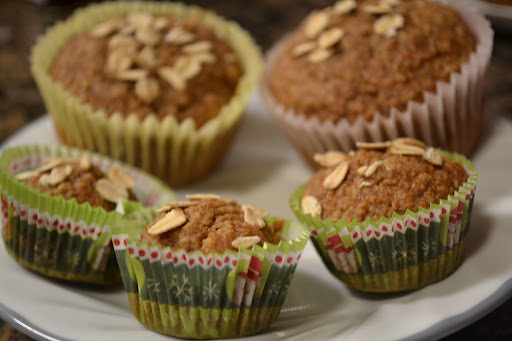
First off, bread is made from grain kernels, and within grain kernels, are three parts—the (1) bran, (2) germ and (3) endosperm.
- The (1) bran and (2) germ are the nutrient rich and fiber-dense parts
- The (3) endosperm is the starchy, carbohydrate part.
Whole grains contain all three parts of the grain – the bran, germ and endosperm. By using the entire grain, the nutritional value is maintained.
Refined grains have been milled (ground into flour or meal) which rids the bran and germ, leaving only the endosperm. Without the bran and germ, the grain loses 25% of the protein and many vitamins, minerals and fiber… leaving the grain significantly less nutritious.
Whole grains contain many disease fighting phyto-chemicals, antioxidants, vitamins, iron and fiber. By choosing whole grains, you will not only reap the nutritional benefits, but also feel more full. Because whole grains hold much more nutritional value than refined grains, they significantly reduce the risk of heart disease, stroke, cancer, diabetes and obesity. Aim to get 3-5 servings a day.
If you are new to whole grains, start off slow and eventually, you will begin to love the heartiness and nuttiness in the whole grain products. My family started doing half brown rice with half white rice. Now we all eat brown rice!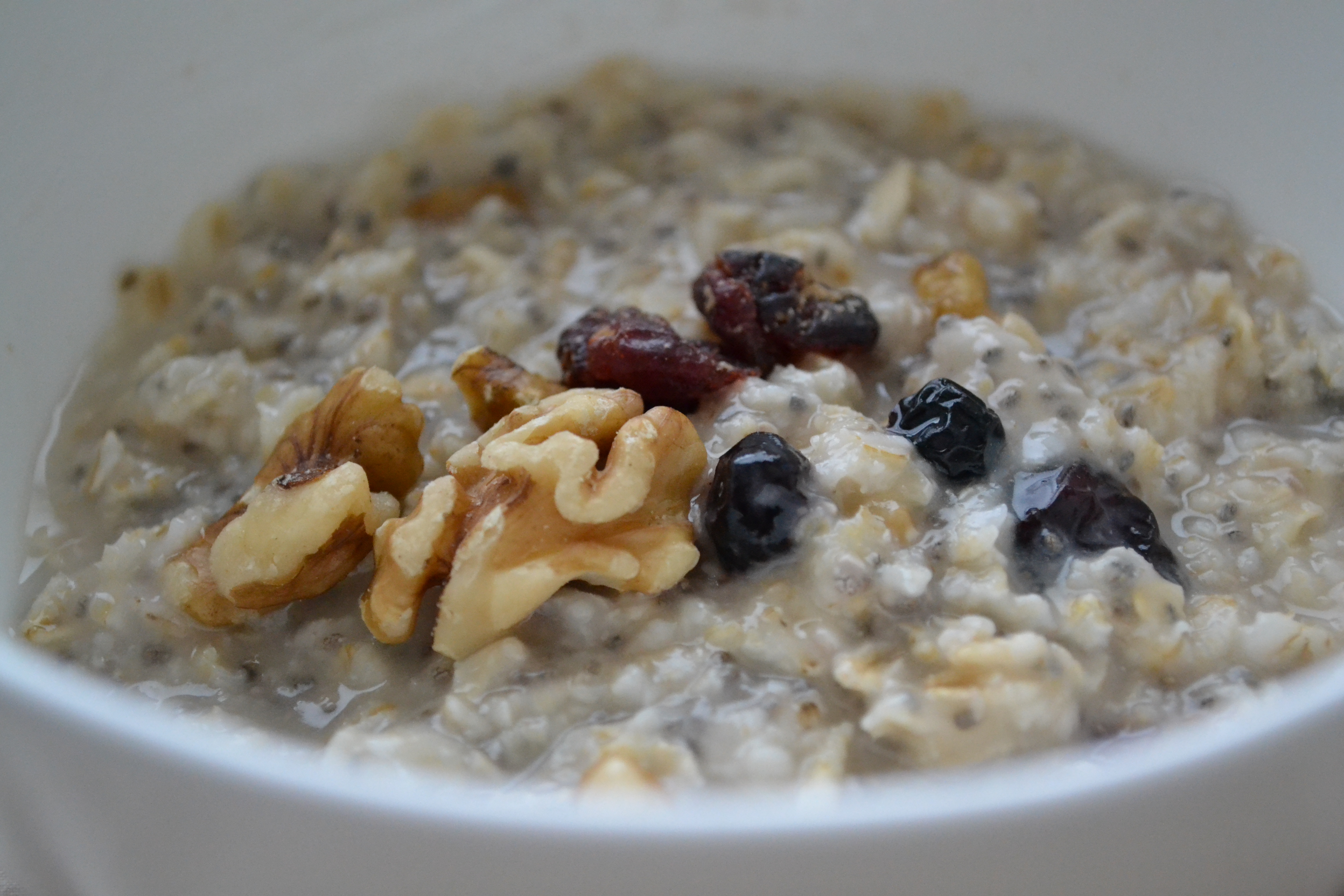
Food marketers are tricky. Don’t be fooled, LOOK AT THE INGREDIENT LIST!
- For breads, the first ingredient should begin with the word “whole”. (ex: whole grain, whole wheat) If it begins with just “wheat”, it is made from refined wheat flour
- For rice, the first ingredient word should be “brown”
- For oats, you are getting “whole oats” no matter what!
“Unbleached wheat flour”, “wheat flour”, “Multigrain”, “Grain”, “natural” does NOT mean the product is from whole wheat! Some examples of whole grains are: brown rice, whole wheat breads and pastas, oatmeal, buckwheat, wheat berry and barley
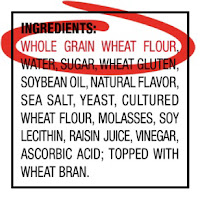 |
| From: www.blendcentralmn.org |
Be sure to read closely when picking out your products. Even ‘Cheez-It Whole Grain’ have whole grains as the THIRD ingredient. It follows “Enriched Flour” and soybean and palm oil, meaning there is probably very few whole grains.
The best way to know you are getting whole grains, is to make your own dishes! Here are some of my favorite whole grain recipes:
Whole Wheat Peanut Butter Pancakes

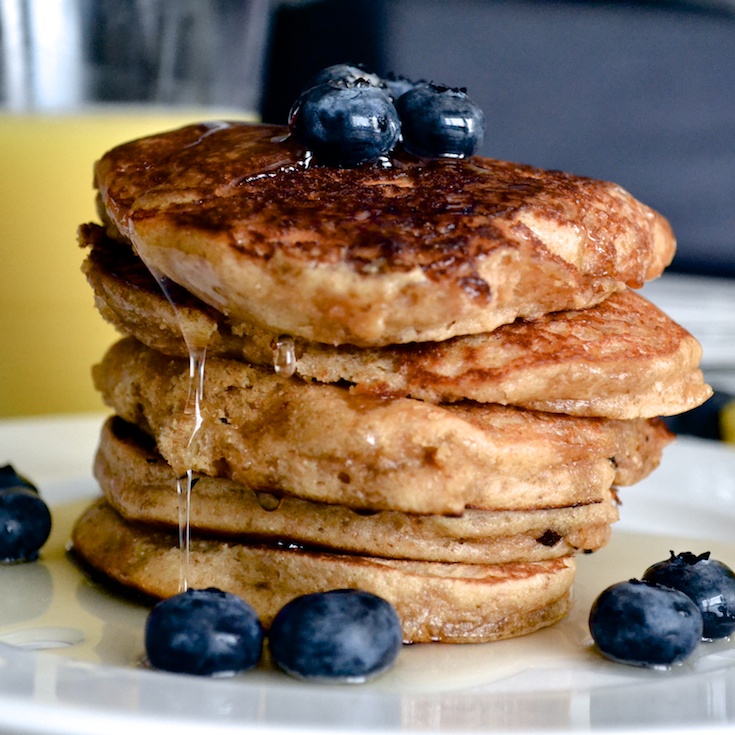
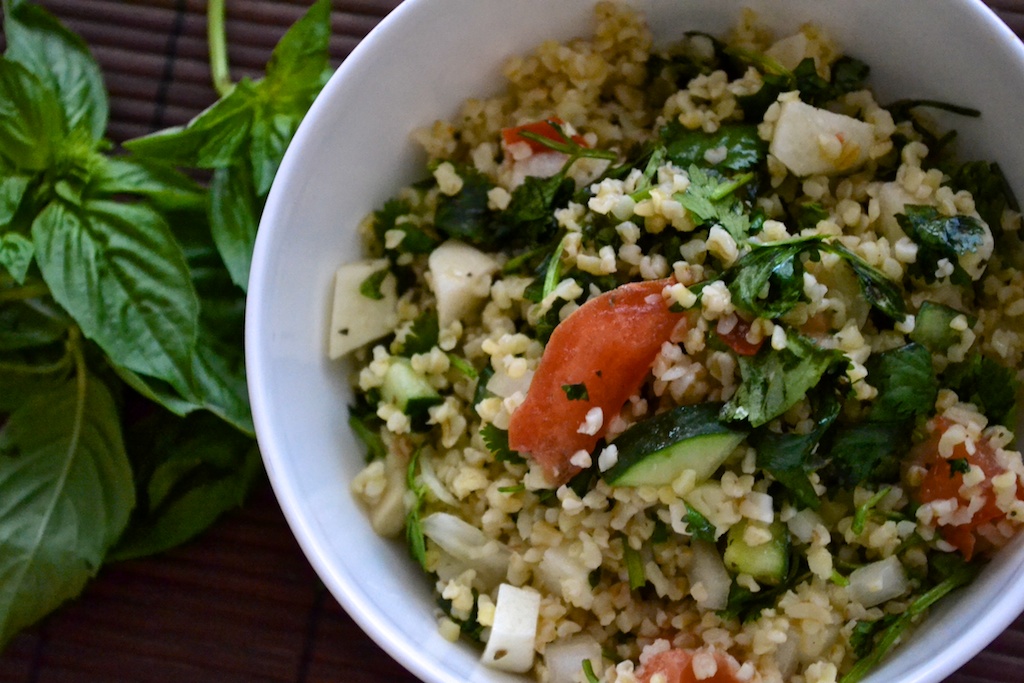
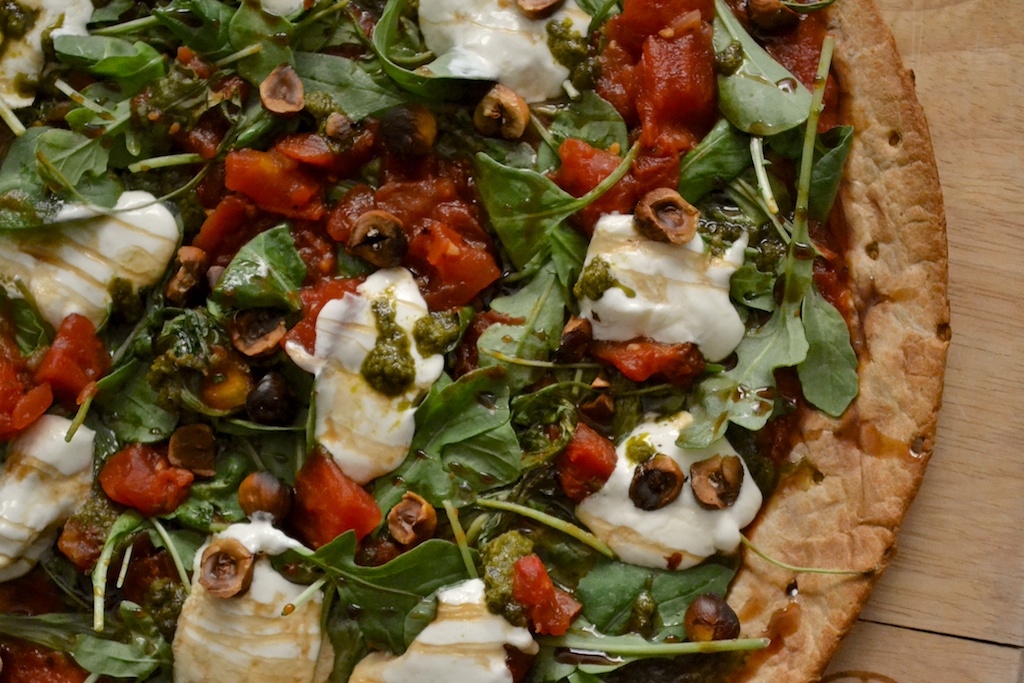
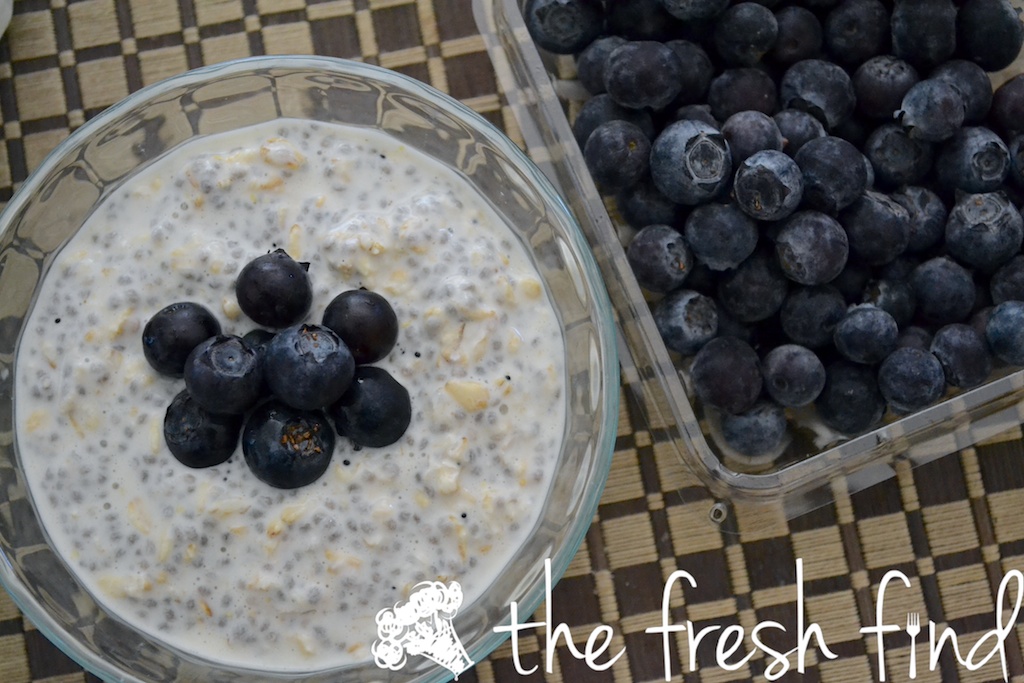
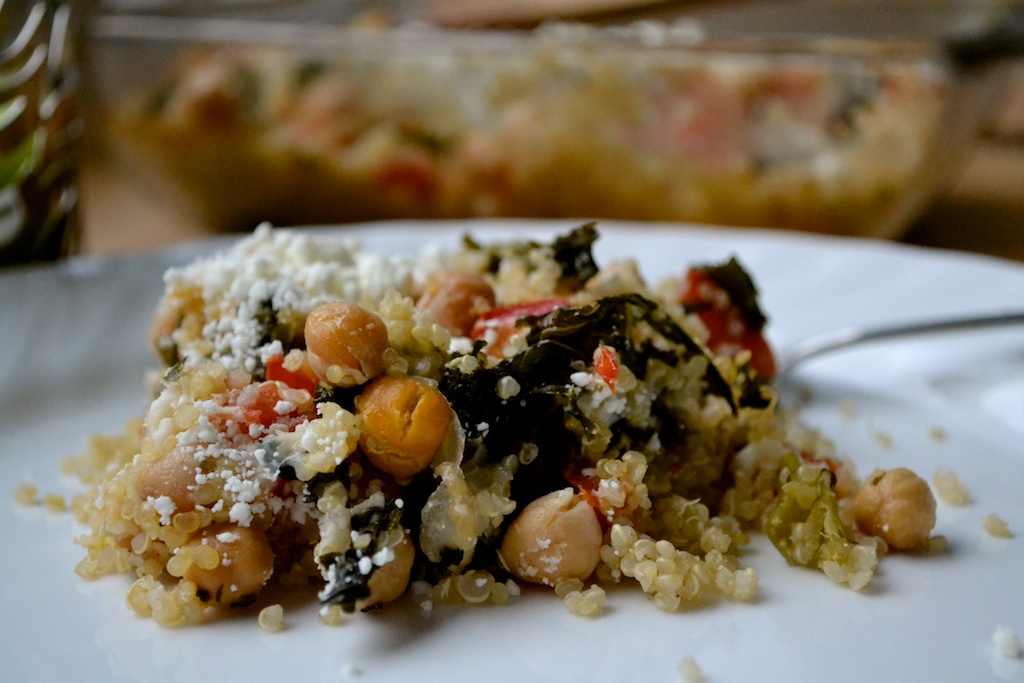
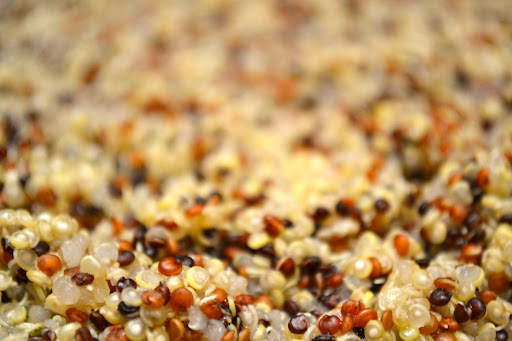
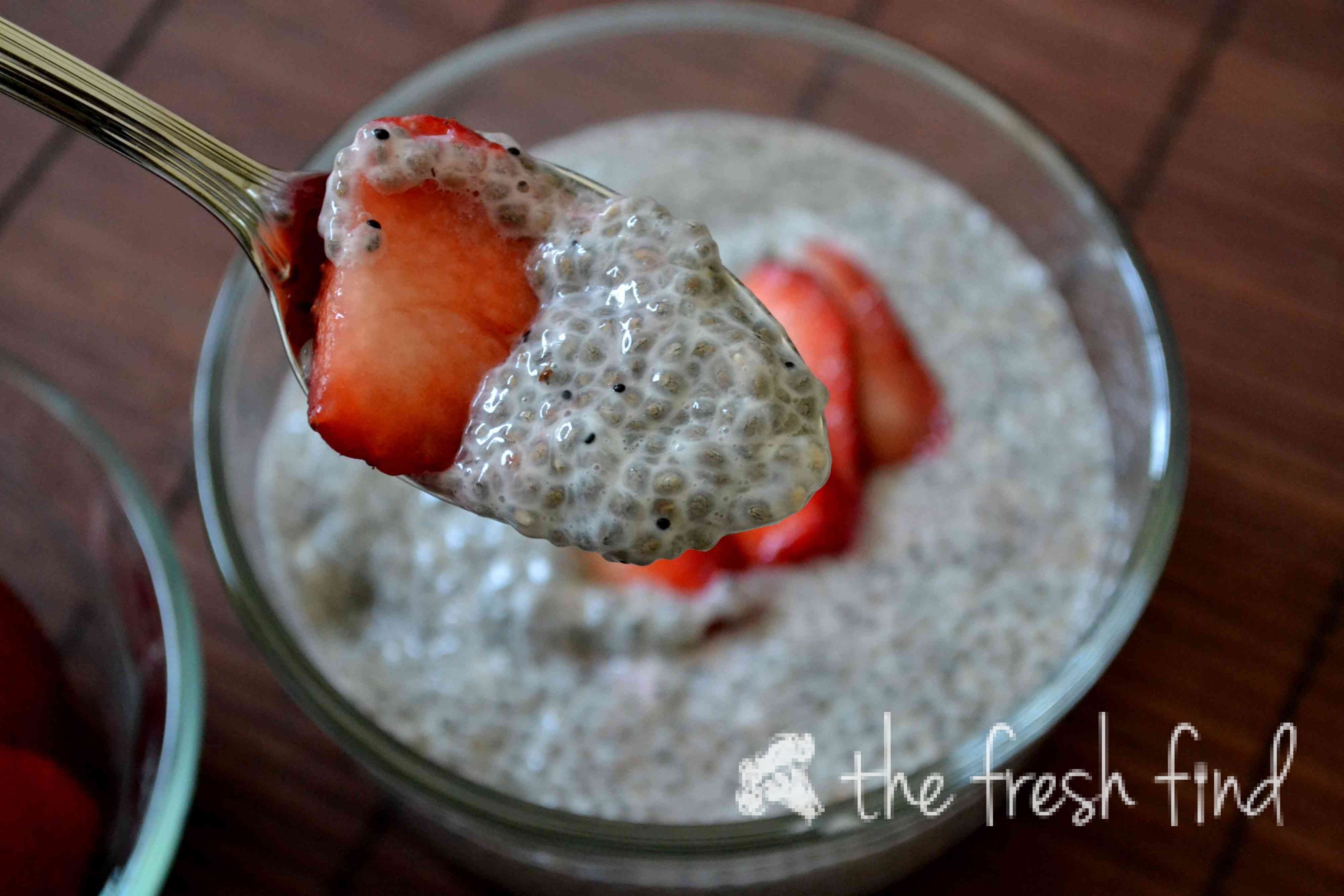
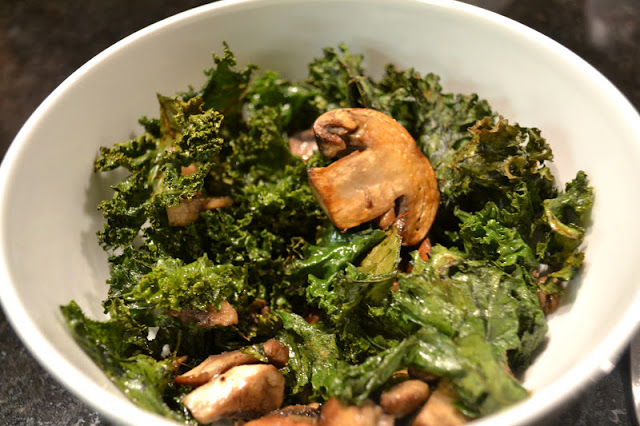
5 Comments
Dara Reppucci
February 27, 2012 at 6:05 pmI love whole grain pizza dough! I have never had Trader Joe’s though.. I should stop by and see if they have it at my local store. I love the idea of half marinara half pesto.
Kristin @ thefreshfind
March 1, 2012 at 12:36 amTheirs is delicious! It comes out really crispy and hearty :) Let me know how it goes!
Spinach, Brown Rice and Feta Casserole | The Fresh Find
June 11, 2013 at 3:21 pm[…] Brown rice= whole grain. Why Go Whole Grain? […]
Whole Wheat Vegetarian Pasta Nests | The Fresh Find
June 13, 2013 at 9:26 am[…] You can make any type of pasta with these. I went with a tomato and parsley version, but pesto, basil, marinara, goat cheese would all be delicious additions! For more information on whole grains, here is my post on Why You Should Eat Whole Grains. […]
Skinny Banana Bread w/ Chia Seed | The Fresh Find
August 14, 2013 at 11:14 pm[…] lastly, they were whole wheat! Here is my post on why whole grains are better for […]